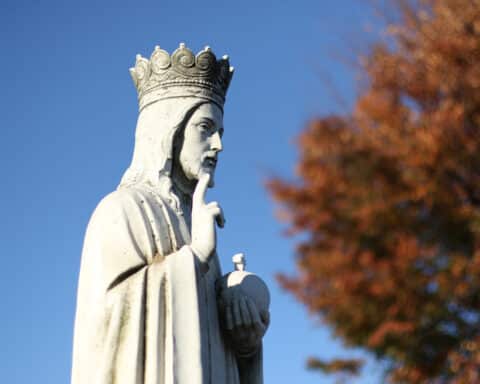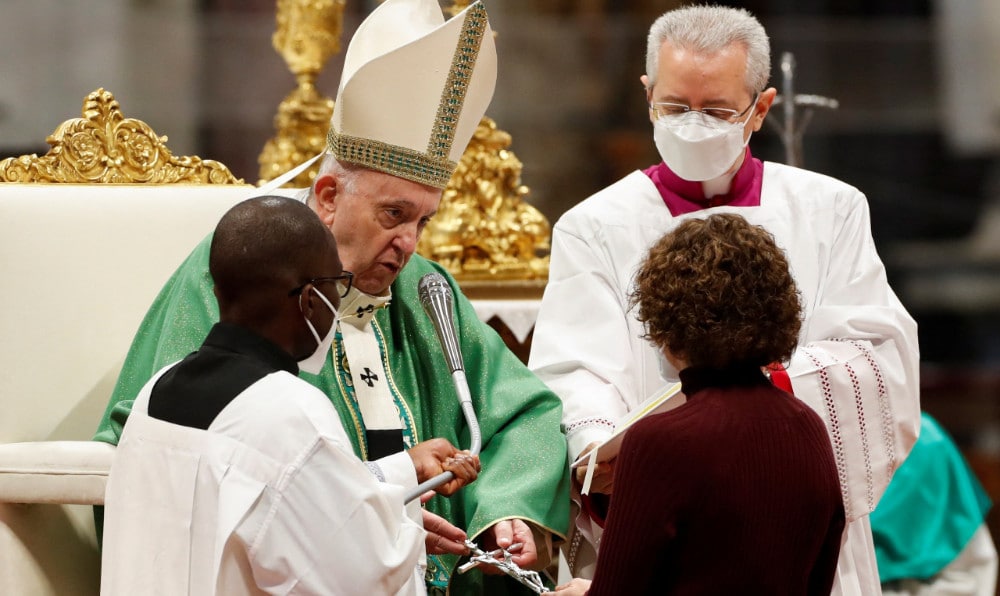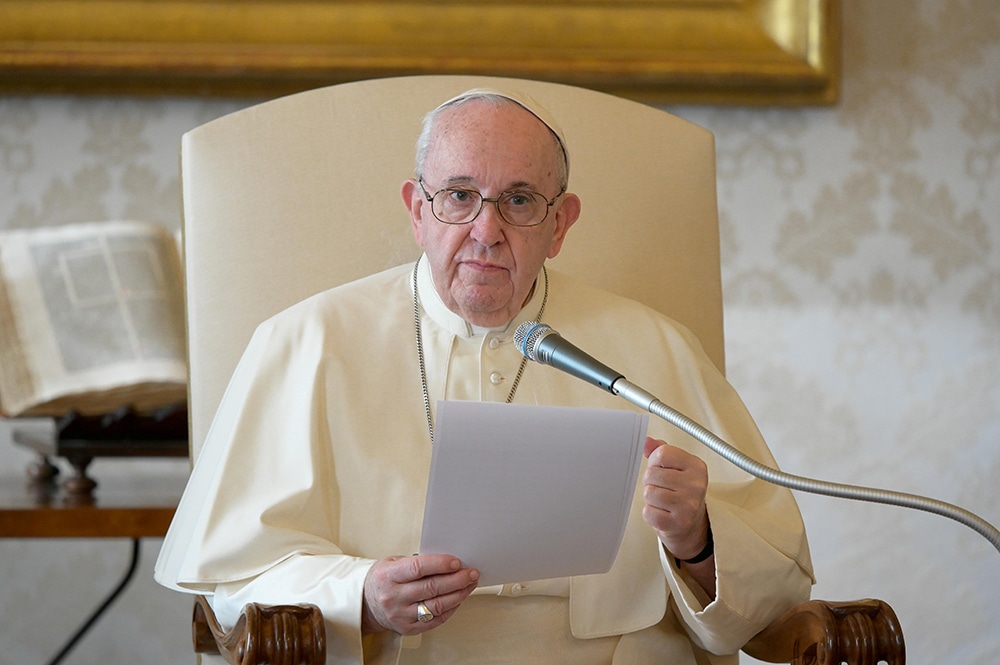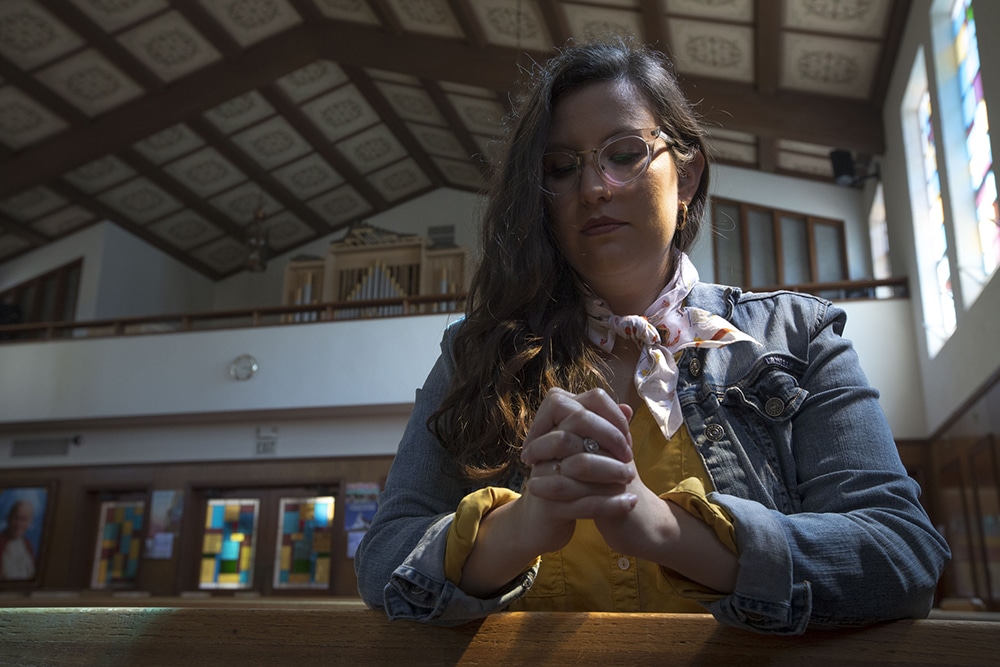
— Jeannine Aucoin, Henniker, New Hampshire
Answer: I share your sympathies with the chronological chaos of the Christmas cycle. There are other items to add to the list. For example, the feast of the Holy Innocents is celebrated inside the Christmas Octave and before the feast of the Epiphany, even though the tragic killing of the infant boys by Herod took place after the Epiphany. Further, the feast of the Holy Family also leaps ahead in time by presenting Gospels about the flight to Egypt and the finding of the 12-year-old Jesus in the Temple.
Our irritation about this chronological skipping, while understandable, also indicates a rather modern and Western fussiness about time. We live in a culture where time and calendars are precise. A strict understanding of time has a very important way of organizing our life and how we understand history as well. But precision with time was not possible or a preoccupation with the ancient and biblical world. Precise timepieces and calendars that all agreed to follow were not at hand. Jews often debated among themselves about the exact date of Passover in a given year. Some followed a lunar calendar, others followed a solar calendar, and Romans and Greeks also had different calendars.
Even today, there are many cultures that are far more relaxed about time than we are. In an American or Northern European setting, “I’ll see you Tuesday at 2:00 p.m.” means precisely that. And, if I am late, there are consequences to that. However in many cultures of more Southern and tropical zones, “Tuesday at 2:00 p.m.” is more of a general framework, and even showing up at 3:15 p.m. does not usually seem surprising. In my own parish, we have an Eastern-rite Ethiopian community that, like many Eastern rites, uses the Julian calendar, not the Gregorian calendar. Thus Christmas for them occurs several weeks later than Dec. 25. Easter, too, is seldom on the same Sunday as the Western and Roman rites. Somehow we all survive and acknowledge each other’s celebrations.
Perhaps the best way to address your concern (and mine, too) is to remember that the liturgy touches eternity where the past and future are all present. While the chronological time in which we live unfolds in an orderly way, eternity is able to randomly access the past (and even the future) and make it present. The liturgy, while not wholly discarding chronological and orderly time, points more to and depends on eternal time. In every Mass the passion, death and resurrection of Christ are made present to us. Christ is not being re-sacrificed. No, that once-for-all and perfect sacrifice of Christ is made present to us.
So granted, all of this rocks our world a bit. We modern Westerners like chronological precision and order. But God and things of God are not so easily categorized.
Paradoxically, the feast of the Presentation of the Lord is fixed at 40 days after Christmas because it was prescribed that, 40 days after the birth of a firstborn male child, the family should appear before the priest in the Temple and present a sacrifice unto the Lord. Thus wherever we are in the overall calendar, we stop and celebrate this feast. It is an unusual combination of chronological precision and chronological dysplasia! But, be of good cheer, in the liturgy we touch eternity, and the fullness of time is made present to us.
Saints of the day
Question: When the Church is blessed with so many saints, why is it that on the liturgical calendar there are so many weekdays without a saint of the day? When I pray with a devotional guide, it always has a daily saint.
— Alan and Jane Padlock, Kenosha, Wisconsin
Answer: There are some saints whose feasts are on the Church’s universal calendar. There are other saints whose feasts occur only on the calendar of a certain country or region. Still other saints have no liturgical feast assigned to them at all. However, in this final case, a priest or local community devoted to that saint can offer a votive Mass focused on that saint. Since the Church has too many canonized saints to observe a liturgical feast and day for all of them, it balances prescribed and optional memorials as well as open days to permit the faithful to offer votive Masses.
Msgr. Charles Pope is the pastor of Holy Comforter-St. Cyprian in Washington, D.C., and writes for the Archdiocese of Washington, D.C. at blog.adw.org. Send questions to msgrpope@osv.com.





